Despite the growing demand for environmentally friendly transportation choices, there is currently insufficient infrastructure to support the widespread use of electric cars (EVs). It is essential to decrease worries about driving range and encourage the use of electric cars by installing energy stations in public places, businesses, and residential areas.
Drivers will have more alternatives for recharging their cars if more power stations are available, which will speed up the transition to a more Eco-friendly transportation system. Public locations such as parks and shopping malls conveniently provide power outlets, while residential areas make them easy for homeowners to use. Companies often encourage their staff to switch to electric cars.
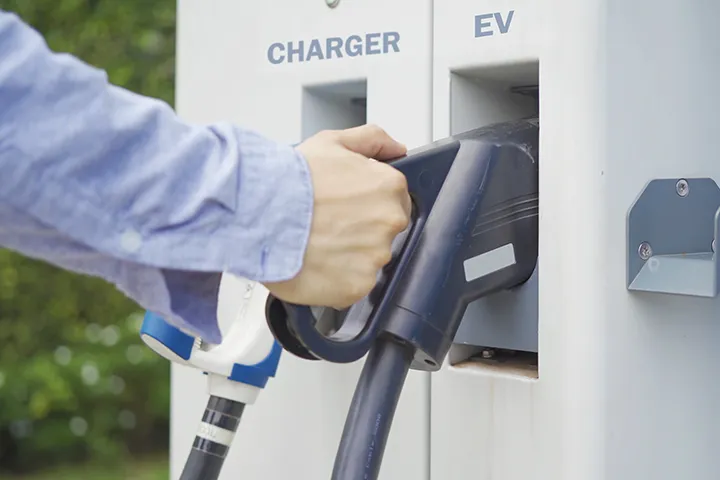
Choosing the Best Locations for EV Charging Infrastructure
Empowering Urban Areas:
A. Commercial buildings
-
Shopping malls
Shopping malls are ideal locations for charging electric cars while shopping or running errands. Families can stop at malls to recharge their electric cars, ensuring they have enough juice to return home.

-
Hotels, restaurants, resorts, and cafes

EV charging for hospitality benefits significantly, as visitors can charge their cars while dining or staying overnight. Furthermore, these EV stations in restaurants can attract customers who value environmental sustainability by providing a convenient service.
-
Retailers
Installing EV charging for retailers can enhance the shopping experience and attract eco-conscious customers who support sustainability-oriented businesses. This service helps retailers stand out from their competitors.

B. Residential areas
-
Private Home
Installing EV charging stations for homes can have a positive impact on property value and attract environmentally conscious buyers. Convenient charging options can boost residents’ confidence in transitioning to e-vehicles.

-
Multi-family complexes
EV charging for multi-family complexes can enhance sustainability efforts and attract Eco-conscious tenants. This not only benefits current tenants but also positions the property as a forward-thinking, Eco-friendly choice for potential renters.

Revolutionizing Commercial and Industrial Spaces
-
Parking facilities
EV charging for parking facilities is a convenient solution for environmentally conscious consumers, attracting repeat business and generating extra income for facilities. This service can also promote longer stays and encourage customers to visit again, making it a valuable addition to the market. It’s a way to stand out and attract more customers.
Strategically placing EV power stations in city streets, public transportation hubs, public parks, and recreational areas can help promote sustainable transportation options for visitors.
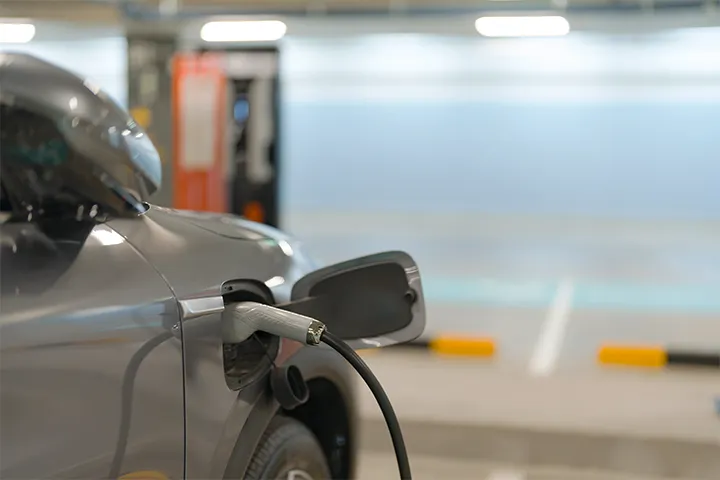
-
Universities and schools
Introducing EV charging stations in universities and schools can encourage the use of electric cars among students and staff, demonstrating sustainability. These stations attract Eco-conscious consumers and potential staff, promoting cleaner air and reducing greenhouse gas emissions. This ultimately leads to a healthier, more sustainable environment for all.

-
Healthcare facilities
EV charging stations in healthcare facilities offer convenience for patients, visitors, and staff who drive electric vehicles. These stations provide easy charging options during medical treatments or visits, encouraging staff to switch to electric cars.

-
Fleet operators
EV charging for Fleet operators can take advantage of flexible and dependable EV solutions for their fleet vehicles. Ensuring that fleet vehicles have access to consistent charging infrastructure is crucial for optimizing operational efficiency and facilitating the shift towards electric transportation.
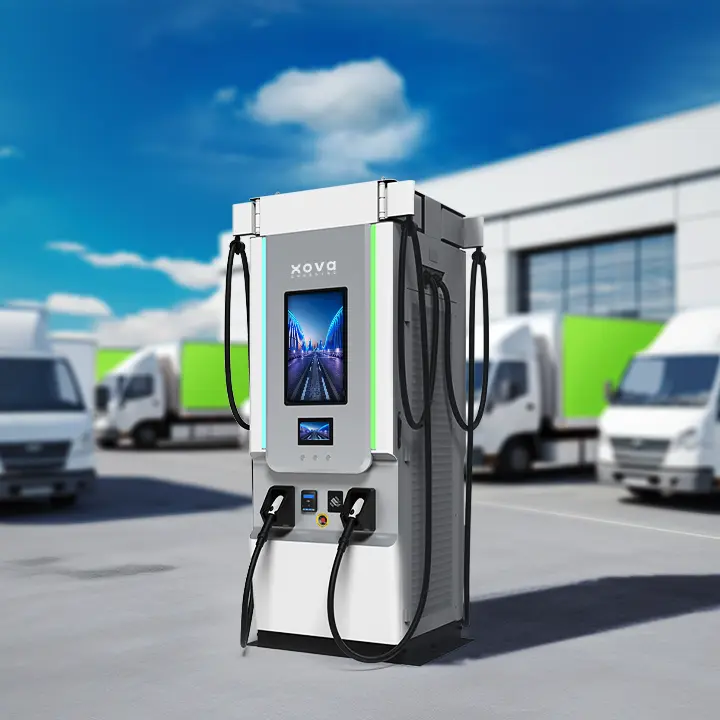
-
Utility providers
A utility company aims to boost revenue and achieve sustainability by supplying EV charging for utility providers and collaborating with travel centers to promote clean energy and encourage the widespread adoption of electric vehicles.

Transforming public transportation
Public transportation is vital for a sustainable future and reducing private vehicle reliance. It includes bus terminals, depots, park and ride lots, transportation hubs, train and commuter rail stations, long-term parking, and car rental services.
-
Airports
Airports are implementing sustainability measures to reduce emissions from vehicles and promote cleaner energy sources. They are providing EV charging stations for travelers and staff, as well as investing in public transportation connections. This integration is crucial for minimizing the environmental impact of air travel and promoting a sustainable future.
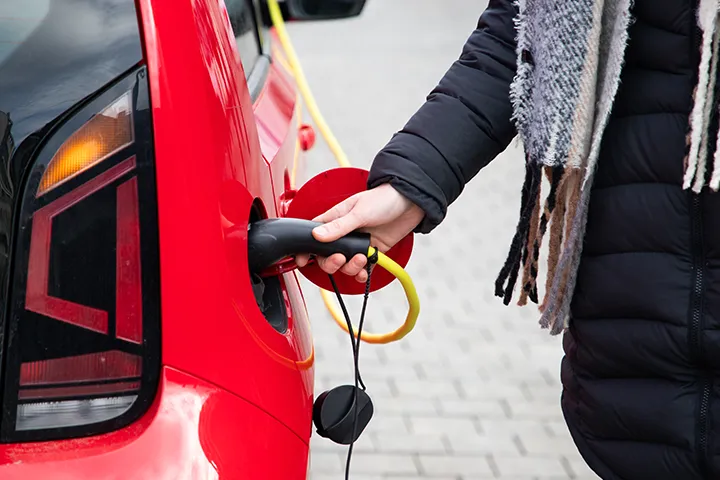
Enhancing recreational and tourism locations
-
National parks
Adding EV charging stations to visitor centers and tourist destinations is a strategic move that can appeal to environmentally conscious travelers and promote sustainable tourism. These power supplies, strategically placed in parks, RV parks, scenic overlooks, and national parks, provide a reliable power source for outdoor activities without the risk of power shortages.
-
Beaches and resorts
Hotels and resorts can take several steps to reduce their carbon footprints and preserve coastal beauty. One way is to utilize EV energy outlets and redesign beach parking lots to encourage cycling as a sustainable alternative to driving.
-
Sports venues
Stadiums, arenas, golf courses, and amusement parks can contribute to sustainability and environmental responsibility by implementing recycling programs, promoting public transportation, using permeable pavement, and offering EV power supply. These actions can inspire visitors to adopt Eco-friendly practices.
-
Marinas
Ev charging for marina can promote sustainability by encouraging boat owners to choose cleaner transportation options and reduce their carbon footprint. This initiative sets a positive example for the boating community and benefits the environment.
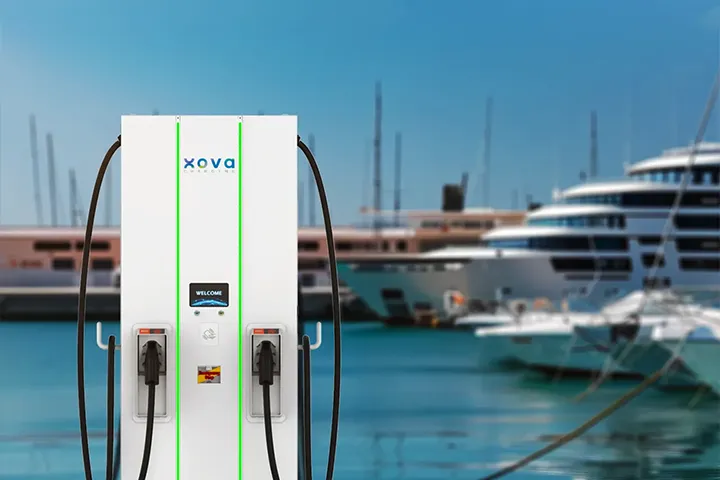
-
Vacation rentals
EV charging for Vacation rentals can stand out as a distinctive amenity, appealing to environmentally conscious travelers. They can also promote sustainability by educating guests on reducing environmental impact, sharing information on local conservation efforts, and partnering with eco-friendly tour operators. They can offer additional assistance in safeguarding natural resources and promoting a sustainable way of life.

-
Travel centers
Rest stops and rest areas on highways can contribute to environmental sustainability by implementing a variety of measures. One way to encourage travelers to choose electric vehicles is to provide EV charging stations at travel centers. and lower their carbon footprints.

Conclusion:
Expanding EV charging infrastructure is crucial for promoting electric vehicle adoption, reducing carbon emissions, and supporting sustainability. Businesses, governments, and individuals must support this expansion for a greener future. Integrating e-power outlets will advance electric transportation and create a sustainable environment. However, without a reliable network of charging infrastructure, EV deployment will be slow. Concerns about charging costs persist, so it is important to install EV power stations in residential areas, workplaces, and public places. This will alleviate range anxiety and promote EV usage. Strategically placing power stations in these sectors can create a comprehensive and accessible network, supporting the transition to a sustainable future. Investing in EV charging infrastructure benefits EV drivers, the environment, and society as a whole.
FAQs About EV Charging
Browse our frequently asked questions or get in touch!
